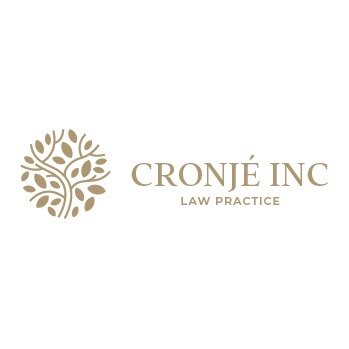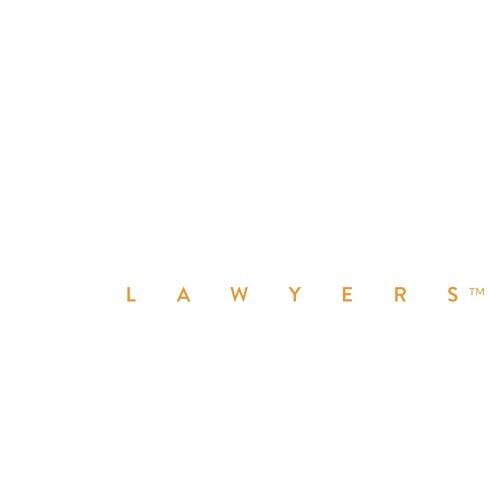Best Renewable & Alternative Energy Lawyers in Windhoek
Share your needs with us, get contacted by law firms.
Free. Takes 2 min.
List of the best lawyers in Windhoek, Namibia
About Renewable & Alternative Energy Law in Windhoek, Namibia
Windhoek, Namibia’s capital, is at the forefront of the country’s transition to renewable and alternative energy sources. As Namibia seeks to reduce its reliance on imported electricity and fossil fuels, there has been a significant increase in solar, wind, and other renewable energy projects. The law surrounding renewable and alternative energy is designed to encourage investment, ensure compliance with international climate commitments, and protect the interests of all stakeholders including local communities, developers, and consumers. Regulations address project licensing, land use, environmental protection, and the integration of renewables into the existing energy grid.
Why You May Need a Lawyer
Individuals and businesses may encounter various legal challenges and opportunities when dealing with renewable and alternative energy in Windhoek. Common reasons to seek legal help include:
- Securing permits and licenses for energy projects
- Drafting and reviewing power purchase agreements
- Navigating land acquisition and lease agreements
- Understanding and complying with local and national environmental regulations
- Dealing with disputes between developers, landowners, and government bodies
- Obtaining government incentives or support for renewable energy investment
- Protecting intellectual property related to energy technology
- Advising on regulations for off-grid or community energy systems
Local Laws Overview
Namibia’s legal framework for renewable and alternative energy is primarily governed by legislation such as the Electricity Act (Act No. 4 of 2007), the Environmental Management Act (Act No. 7 of 2007), and the National Energy Policy. The Electricity Control Board (ECB) regulates the electricity sector and oversees the licensing of generation, transmission, and distribution of electricity including renewables. Environmental clearance from the Ministry of Environment, Forestry and Tourism is mandatory for most renewable energy projects. Developers must also consider local municipal bylaws and land use regulations in Windhoek, ensuring proper consultation with affected communities. Namibia has adopted policies to encourage investment in solar, wind, and biomass energy, including net metering for small-scale producers and tax incentives for certain projects.
Frequently Asked Questions
What is considered renewable and alternative energy in Namibia?
In Namibia, renewable and alternative energy includes solar, wind, hydropower, biomass, and other technologies that produce energy from naturally replenished sources.
Do I need a license to build a renewable energy project in Windhoek?
Yes, you generally need a generation license from the Electricity Control Board for most commercial projects. Additional permits may also be required from environmental and municipal authorities.
Are there government incentives for investing in renewable energy?
Namibia offers various incentives such as tax breaks and net metering schemes for small-scale solar producers. Detailed eligibility requirements can be clarified with the relevant government departments.
How do environmental laws affect renewable energy projects?
Most projects require an Environmental Clearance Certificate to ensure that development does not harm the environment or violate conservation laws.
Who regulates the renewable energy sector in Namibia?
The Electricity Control Board is the main regulator, with additional oversight from the Ministry of Mines and Energy and the Ministry of Environment, Forestry and Tourism.
Can private individuals or businesses sell renewable energy back to the grid?
Yes, through the net metering policy, eligible small-scale producers can feed surplus electricity into the national grid and receive credit on their energy bills.
What are common legal challenges for renewable energy investors?
Common challenges include securing land rights, obtaining all relevant permits, ensuring regulatory compliance, and negotiating power purchase agreements.
Are there zoning or land use restrictions for renewable energy projects in Windhoek?
Yes, municipal bylaws and zoning regulations govern where and how renewable energy installations can be set up, especially within urban or peri-urban areas.
What happens if there is a dispute over a renewable energy project?
Disputes can be resolved through negotiation, mediation, or litigation depending on the nature of the conflict and the parties involved. Legal advice is essential in these cases.
How can I find a qualified renewable energy lawyer in Windhoek?
Look for lawyers or law firms with expertise in energy law, particularly those who have experience with renewable and alternative energy projects. Recommendations from industry associations or regulatory bodies can also help.
Additional Resources
Several resources can assist individuals or businesses seeking legal advice in this field:
- Electricity Control Board (ECB) - regulator for electricity sector
- Ministry of Mines and Energy - responsible for energy policy and programs
- Ministry of Environment, Forestry and Tourism - oversees environmental assessments
- Namibia Energy Institute - provides research and policy guidance
- City of Windhoek Municipality - regulates local land use and licensing
- Namibian Chamber of Environment - for environmental advice and advocacy
- Namibia Renewable Energy Association - industry group offering networking and educational resources
- Legal practitioners with experience in energy and environmental law
Next Steps
If you are considering a renewable or alternative energy project in Windhoek, start by clarifying your goals and gathering all necessary documentation. Consult with a qualified lawyer who understands local laws, regulations, and processes. A legal specialist can guide you through permitting, compliance, contract negotiations, and addressing any disputes. Contact relevant governmental bodies early in your planning and use local industry associations for recommendations. Taking these steps will help ensure your project proceeds smoothly and in full legal compliance.
Lawzana helps you find the best lawyers and law firms in Windhoek through a curated and pre-screened list of qualified legal professionals. Our platform offers rankings and detailed profiles of attorneys and law firms, allowing you to compare based on practice areas, including Renewable & Alternative Energy, experience, and client feedback.
Each profile includes a description of the firm's areas of practice, client reviews, team members and partners, year of establishment, spoken languages, office locations, contact information, social media presence, and any published articles or resources. Most firms on our platform speak English and are experienced in both local and international legal matters.
Get a quote from top-rated law firms in Windhoek, Namibia — quickly, securely, and without unnecessary hassle.
Disclaimer:
The information provided on this page is for general informational purposes only and does not constitute legal advice. While we strive to ensure the accuracy and relevance of the content, legal information may change over time, and interpretations of the law can vary. You should always consult with a qualified legal professional for advice specific to your situation.
We disclaim all liability for actions taken or not taken based on the content of this page. If you believe any information is incorrect or outdated, please contact us, and we will review and update it where appropriate.















